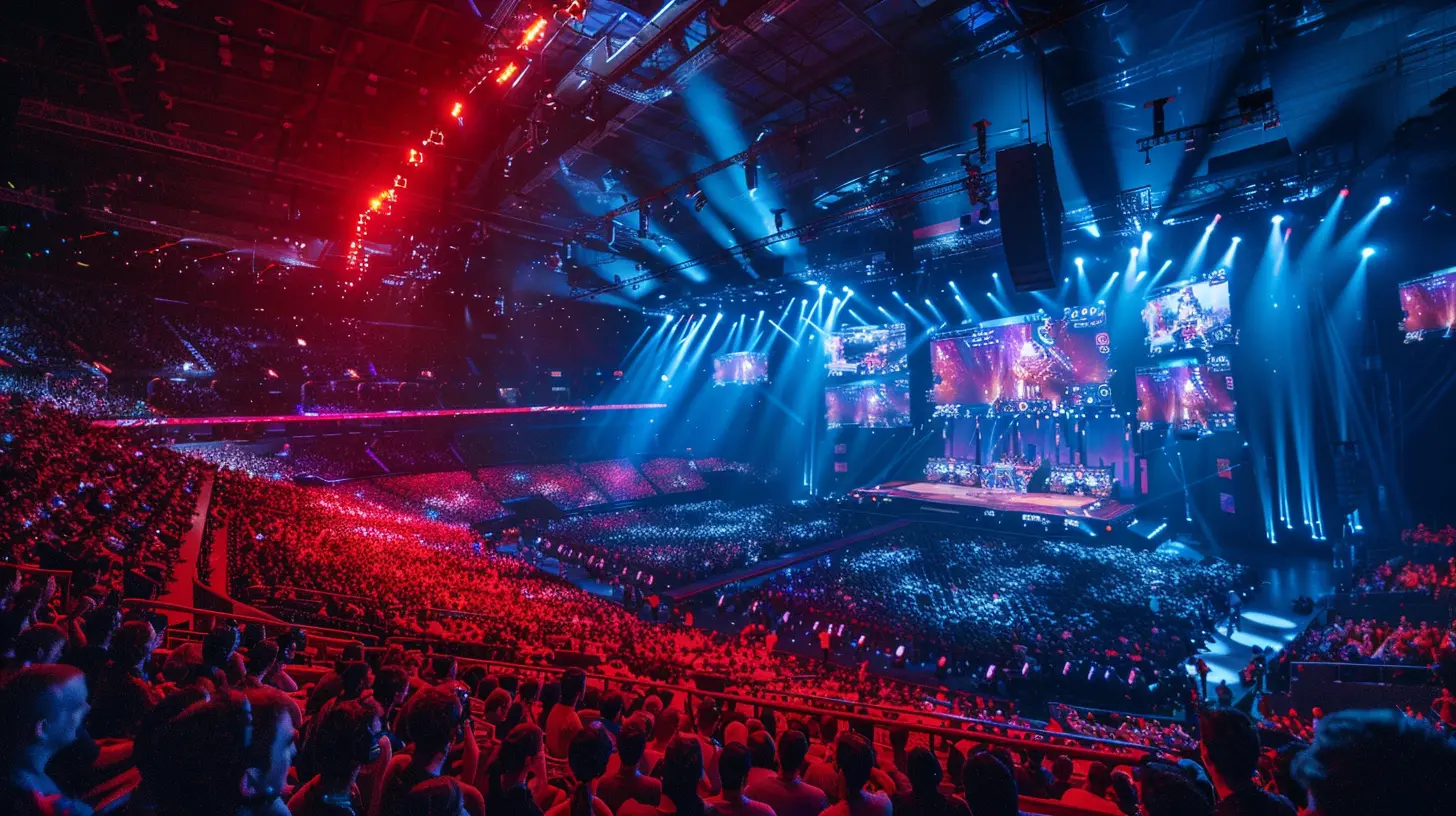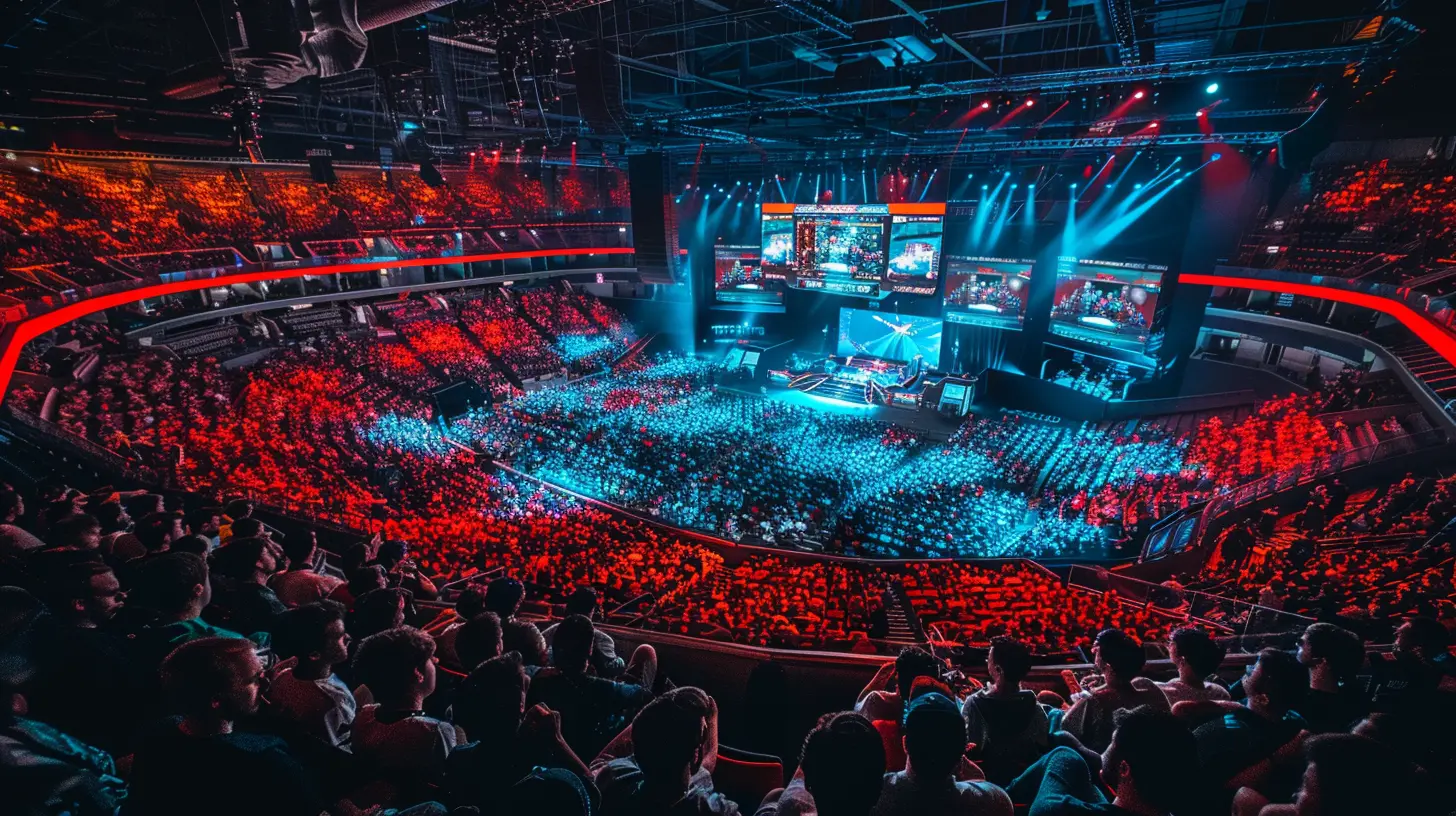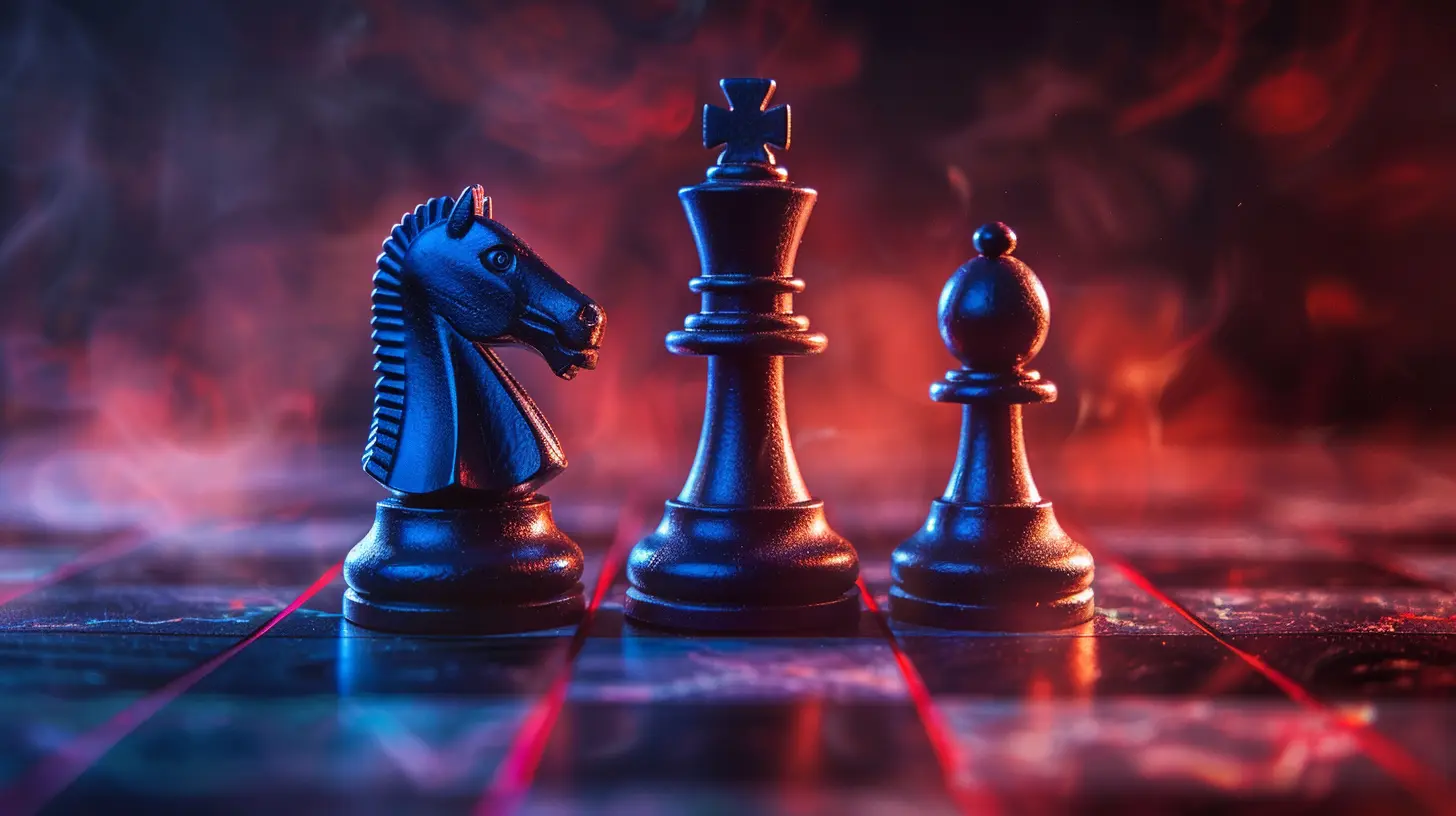Mastering the Art of Mind Games in Competitive Esports
6 August 2025
In the high-octane world of competitive esports, it’s not enough to just have technical skills or lightning-fast reflexes. That’ll take you far—but if you really want to dominate, you’ve got to play the game within the game. We’re talking about mind games. That tricky little dimension where psychology, manipulation, and mental stamina all come into play.
If you’ve ever watched a top-tier player bait an opponent into a trap, or fake a move and pull off an unexpected clutch, guess what? That’s mental strategy at work. And today, we’re diving deep into how you can master the art of mind games in competitive esports. Whether you're grinding ranked matches or setting your sights on pro play, understanding this can be the difference between being good and being a legend.
What Are Mind Games in Esports, Really?
Let’s cut through the noise—mind games in esports are psychological tactics players use to manipulate opponents, throw them off, or force mistakes. It’s about getting into your enemy’s head and living there rent-free.Ever heard of "conditioning" your opponent? Like always pushing a lane aggressively, making them expect it, and then suddenly switching it up? That’s a mind game. It’s like poker—but with headshots, macro plays, and digital dominance.
Why Mind Games Matter More Than You Think
Sure, your aim might be deadly accurate, and your build paths might be optimized. But at the highest levels? Everyone’s good. What separates the champs from the chumps is who can stay cool, adapt fast, and crack their enemies mentally.When you start winning the psychological battle, things get easier. Enemies tilt. They misplay. They second-guess themselves. You become unpredictable, and unpredictability is lethal.
Think of mind games as the hidden stat that never shows up on leaderboards, but often determines the outcome of the game.
Mind Games Aren’t Just Trash Talk
Let’s clear this up: mind games aren’t just about flaming in chat or taunting when you get a kill. That’s just noise. Real mind games are strategic, subtle, and smart. It’s about misdirection, timing, and understanding human behavior.Wanna mess with someone’s head? It helps to understand how they're likely to react under pressure or when they’re ahead. Anticipating their next move like a chess grandmaster—while executing your own flawless mechanics—is where true esports mastery lies.
Psychological Warfare: Top Techniques to Use on Your Opponents
Alright, let’s get into the nitty-gritty. You want techniques? Here are some classic mind game strategies that can give you the upper hand in just about any competitive title:1. The Fake Out
Ever pretend to rotate, only to double back and catch the enemy off-guard? That’s a fake out. You’re feeding your opponent false information on purpose. Smokes in CS2, teleport cancels in League, or fake peeks in Valorant—it all works.You’re setting a narrative, and then flipping the script. It’s storytelling with a side of humiliation.
2. Conditioning
This one’s slick and simple. You keep doing the same thing—say, always pushing mid—and your opponent starts expecting it. Then, out of nowhere, you do something different. Boom. You’ve trained them like Pavlov's dog, then pulled the rug out from under them.It’s powerful because it uses their own assumptions against them. And trust me, when done right, it feels like magic.
3. Deliberate Mistakes
This is next-level stuff. You intentionally leave yourself “open” or make a “bad” play—on purpose. Your opponent goes in for the punish... and then falls into your trap.You ever pretend to miss a shot just to bait someone into peeking? That’s the good stuff. Dangerous? Sure. But deadly when pulled off right.
4. Tilt Induction
Let’s be honest, everyone tilts. It’s human. But if you can keep your cool while nudging your opponent toward frustration-ville? You gain a massive edge.Maybe you outrotate them three times in a row. Maybe you keep dodging their ult perfectly. They’ll start chasing kills, missing skill shots, or going on tilt. And once they’re mentally compromised, it's game over.
Reading Your Opponent: The Esports Sixth Sense
Mind games aren’t just played—they're felt. You know you’re leveling up when you start picking up on subtle cues and patterns mid-match.Are they playing more aggressively than usual? Maybe they’re desperate. Do they keep checking the same corner? Maybe they’re scared. You're reading the rhythm of the game like a DJ reading a dance floor.
It’s not ESP. It’s observation, experience, and intuition all wrapped up in one deadly skill set.
Mental Fortitude: The Other Side of the Coin
Playing mind games is one thing. Defending against them is another.You can’t be out here playing 4D chess if someone can throw you off your vibe with a lucky headshot or a little trash talk. If you want to dominate, you’ve got to have nerves of steel.
Here’s how to build that mental wall:
Stay Self-Aware
Know when you’re tilting. Recognize it. Don’t pretend it’s not happening. Pause, breathe, reset. Whether you need a deep breath or a break between matches, do what works.Don’t Predict—Adapt
Sticking to a plan works… until it doesn’t. Always be ready to pivot. Adaptability is the antidote to enemy mind games.Trust Your Game Sense
Second-guessing yourself is a one-way ticket to defeat. Trust your instinct. Doubt is the biggest enemy of precision and speed.Team Dynamics: Mind Games in a Squad Setting
Mind games aren’t just a solo act. In team-based esports, coordination and psychological synergy take center stage.You can run fake strats, rotate like ghosts, or set up ambushes that’ll give your opponents nightmares. The best teams understand when to play mind games and when to play it straight, creating an ever-changing mix that keeps enemies guessing.
Plus, internal team communication impacts your psychological edge. A tilted teammate causes cracks in your mental armor. So keep the vibes chill, the comms clean, and the trust strong.
Iconic Mind Game Moments in Esports History
Let’s take a quick stroll through memory lane. Here are just a few legendary plays where mind games stole the spotlight:- Faker's Zed Duel (2013): Faker vs Ryu in LoL. The mind games during that sequence? Unreal. Faker’s confidence and counterplay didn’t just win the fight. It crushed spirits.
- CS:GO Fake Plant Plays: Teams like Astralis have famously faked bomb plants to draw out peeks. Simple concept, huge payoff.
- Overwatch’s Double Bluff Composition Switches: Swapping heroes in spawn and baiting the enemy into building a comp to counter… the wrong strategy. Genius.
These are the moments that get etched in esports history—because winning the mind game feels like soul-snatching glory.
Training Your Mental Game
So, how can you actually improve your psychological warfare skills?Review Your Games (Honestly)
Watch your own VODs. Were you predictable? Did your opponent psych you out? Be brutally honest. That’s how growth happens.Analyze Opponents
Don’t just study their aim or strategy. Look at their patterns, their tilt triggers, their comfort zones. Exploit them.Practice Patience
Don’t force a play. Let the opportunity present itself. The best mind game tactics rely on timing and control, not just clever ideas.The Future of Mind Games in Esports
As esports continues to evolve, so will the mental aspect of the game. Expect sports psychologists to become more prominent in pro orgs. Expect AI tools helping players analyze patterns and emotion. The meta will grow, and so will the importance of mental mastery.The mind game meta might just be the new mechanical skill ceiling.
Final Thoughts: It’s More Than Just Skills and Strats
If you really want to make a name for yourself, don’t just grind aim trainers and memorize maps. Get inside people’s heads. Understand how they think, and how you can use that against them.Because when raw skill meets mind mastery? That’s when the magic happens.
So the next time you boot up your favorite game, remember—you’re not just playing with a mouse and keyboard. You’re playing with your opponent’s brain. And if you can control that? You're not just a good player. You're a psychological assassin wrapped in RGB lighting.
all images in this post were generated using AI tools
Category:
Competitive GamingAuthor:

Luke Baker
Discussion
rate this article
2 comments
Runeveil McAnally
Mastering mind games? Just remember, it's all fun and games until someone brings out the psychic predictions. Game on, fortune tellers!
November 29, 2025 at 4:06 AM

Luke Baker
Thanks for the playful comment! Psychic predictions certainly add a unique twist to mind games in esports. Game on!
Ariella McFarlane
Strategic deception elevates gameplay; mental fortitude is crucial.
August 7, 2025 at 3:25 PM

Luke Baker
Absolutely! Strategic deception not only enhances gameplay but also tests players' mental resilience, making it a key component of competitive esports.


